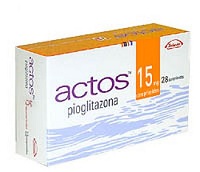 The first trial of a lawsuit linking the diabetes drug Actos with bladder cancer is about to begin. As Bloomberg reports, jury selection starts today in Los Angeles, as Takeda Pharmaceuticals gears up to fight more than 3,000 claims from patients who used the diabetes drug.
The first trial of a lawsuit linking the diabetes drug Actos with bladder cancer is about to begin. As Bloomberg reports, jury selection starts today in Los Angeles, as Takeda Pharmaceuticals gears up to fight more than 3,000 claims from patients who used the diabetes drug.
Plaintiff Jack Cooper, who is "gravely ill" with bladder cancer, alleges that Takeda's U.S. unit didn't adequately warn potential patients that Actos could cause the disease. It's among a group of personal-injury cases under review in the same California state court. Another 1,200 lawsuits are consolidated in federal court in Louisiana; as Bloomberg notes, the first of those cases is set for trial in November 2014.
The lawsuits follow years of questions about Actos and its potential to increase the risk of bladder cancer. The FDA flagged the risk in a new analysis of an Actos trial, which suggested Actos patients faced increased risk of bladder cancer and heart problems. The drug already wore a warning about the risks of congestive heart failure.
Given the safety questions surrounding Actos' only direct competitor and fellow DPP-4 inhibitor Avandia, any new risks associated with Actos were destined to command attention. Soon after the FDA's announcement, regulators in Germany and France forced Takeda to pull Actos off the market. European regulators, meanwhile, were conducting their own investigation.
Now, the FDA's review is ongoing, Takeda tells Bloomberg, with results expected next year. The agency has already required new warning language on the drug's label. A study published last year in the journal BMJ tied Actos to bladder cancer, with the risk of developing the disease rising with long-term use.
The lawsuits contend that Takeda kept back reports about Actos risks, downplayed worries about its links with cancer, and even misled the FDA about its potential dangers, Bloomberg says. Takeda, however, says there's no proof that Actos causes bladder cancer and maintains that it handled the drug and its safety questions responsibly.
- see the Bloomberg story